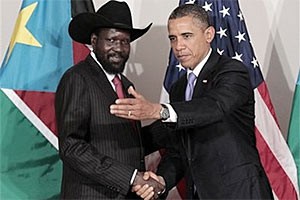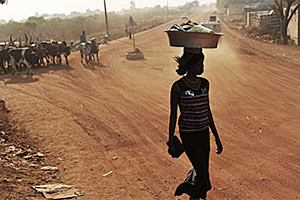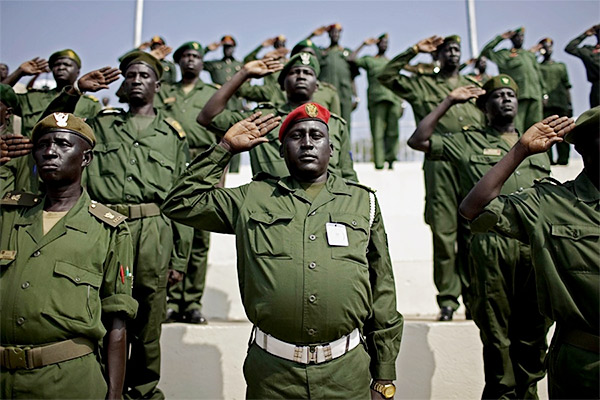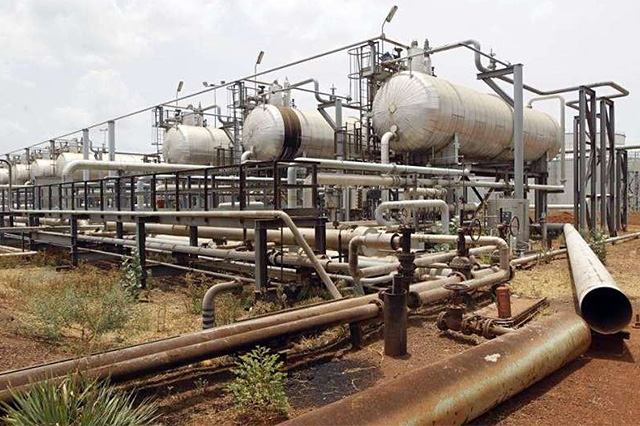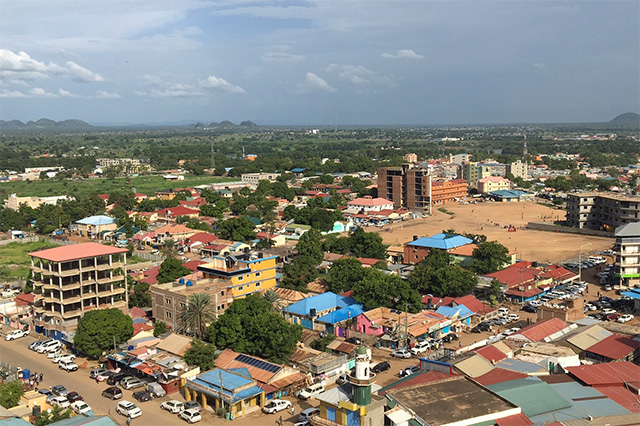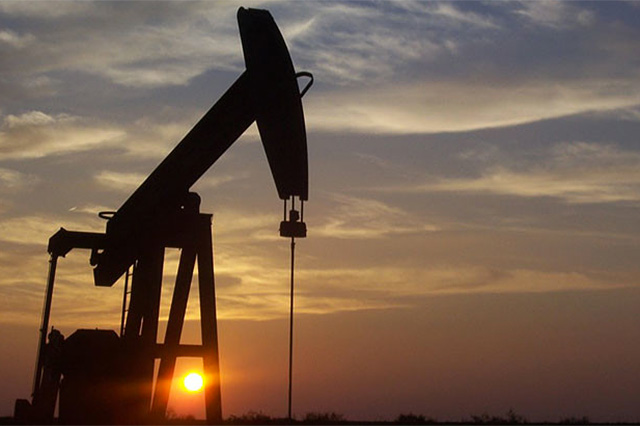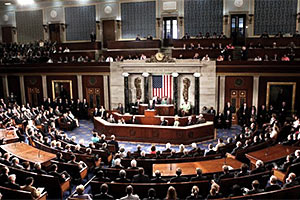South Sudan: President Kiir lures foreign investors despite institutional weaknesses
South Sudan president Salva Kiir has urged domestic and foreign investors to take up available investment opportunities, regardless of the existing institutional weakness and challenges of governance and insecurity in the country.
"South Sudan is ready and open to business. God has blessed us and endowed our young country with vast resources, in terms of fertile lands, forests, water resources, mineral and petroleum resources among others," Kiir said at a cocktail party organised at the end of a two-day investment conference.
"Those who wait too long will miss the vast investment opportunities that our country offers. The time to invest in South Sudan is now, not tomorrow", he added.
The two-day investment conference, held in the capital, Juba, showcased business and investment opportunities in South Sudan, creating a roadmap for the country's diversification programme.
At least 600 investors, officials said, graced the forum held on the theme, "Investment for Economic Diversification and Prosperity."
Kiir, while opening the forum a day on Wednesday, told investors that successful business was about venturing and taking a business risk, stressing that his administration was exerting efforts to create an encouraging environment for investments.
"We must work collectively to exploit these resources for the benefit of our people. I would therefore like to assure our investors that government is putting in place the necessary policies, laws and regulations in order to create an encouraging environment for both domestic and foreign investments", said the South Sudan leader.
Several dignitaries, including the United States special envoy for the two Sudans, Donald Booth attended the investment forum, which focused on agriculture, health, mining, petroleum, tourism and infrastructure as priority sectors.
Booth, in his remarks, urged the South Sudanese leadership to put in place laws to protect domestic and foreign investors in the country.
"I think a proper framework for public-private partnerships would allow government and investors to maximize returns on private money and leverage economic growth", he said.
He also encouraged South Sudanese investors to ensure they benefited from the US-initiated Africa Growth and Opportunity Act (AGOA), which allow Africans countries who are members to export goods to American markets.
What citizens say
Independent observers and ordinary citizens have, however, expressed fears and doubt whether real investors would accept investing in a country with weak institutions.
"I absolutely support the president on the need to attract the attention of both foreign and domestic investors so that they complement efforts of the government. A nation is never developed by individual institutions. It is shared efforts between public and private institutions", said Dut Dau Deng, a South Sudanese businessman.
"What the government does is to create an enabling environment for investment in term of providing security and developing infrastructures like roads, power and good policies", he added.
Deng further claimed that "political interests and interferences" have surpassed interests in the economy, which is now forgotten".
"Lack of political will to encourage an environment conducive for investment operations destroy the economy", added the businessman.
Alfred Sebit, a South Sudanese returning from the diaspora to his home state of Central Equatoria, said wealthy multinational companies with investment in the country are always held back by allegations of corruption, human right abuses and limited press freedom to promote transparency and accountability.
"I have lived in the United Kingdom for 18 years and what I found there is that business groups, especially the wealthier ones, prefer investing in countries where the media operate freely because media helps enhance transparency and accountability", said Sebit.
Another thing is an environment for investment and policies. Investors go to countries with political and economic stability, he added.
Meanwhile Tut Gatluak Pal said it was high time the government reached out to the rebel groups so that peace and development are extended to areas like Jonglei state, which needs roads for the delivery of basic services.
"I come from Ayod County in Jonglei State, which is a peaceful place but not connected to Bor and Malakal, due to lack of road network and also insecurity in the neigbouring communities, making it difficult for the government to deliver services to the people in the area", Pal explained in an interview with Sudan Tribune.
Bol Deng, also a native of Jonglei currently in living Juba echoed Pal's view, explaining that a large number of business group and humanitarian organizations have repeatedly complained about the deteriorating security situation in the area, saying it discourages foreign investment.
"The recent attack in Twic East justifies the fear with the foreign investors. As I am talking to you, a large number of business partners have changed their minds and destinations to other countries. I went to the United States and Australia twice this year looking for business partners but the responses I got in these trips were only fears about insecurity, especially in Jonglei", said Deng.
But president Kiir, despite all these concerns raised, said his administration was strengthening the capacity of the ministries and the institutions to efficiently and effectively regulate and guide the development of the economy.
"Partnership with the private sector and other economic partners is important to our Government. We believe that successfully attracting investments in these sectors will have a major impact on our economy", Kiir told investors at the conference.
"Our Government is therefore open to proposals from the private sector to implement investments under the public private partnership (PPP) approach. We expect this approach to help us in dealing with major infrastructure projects", he stressed.


